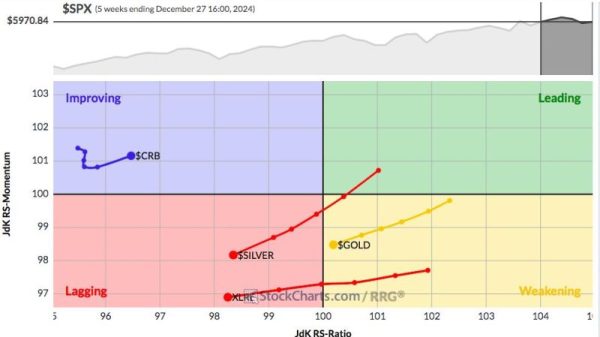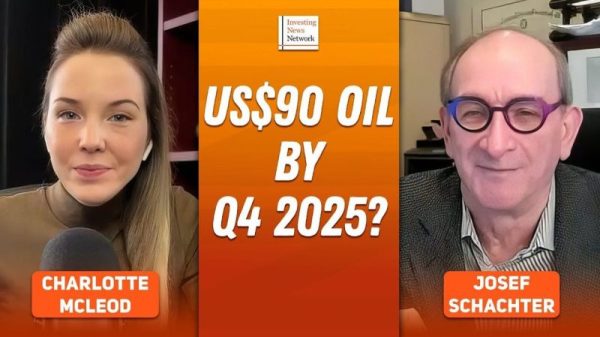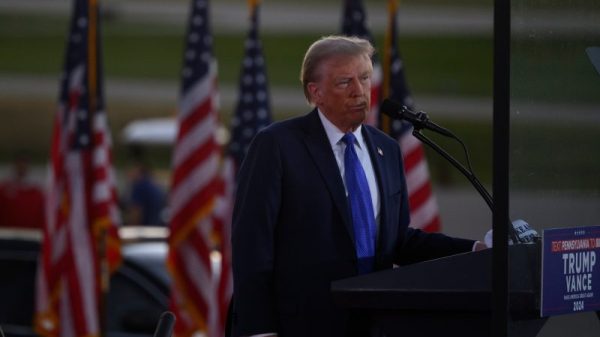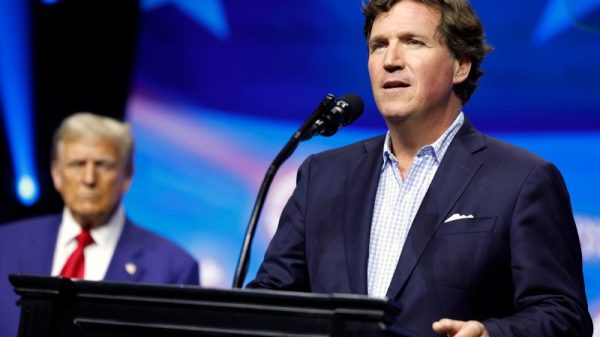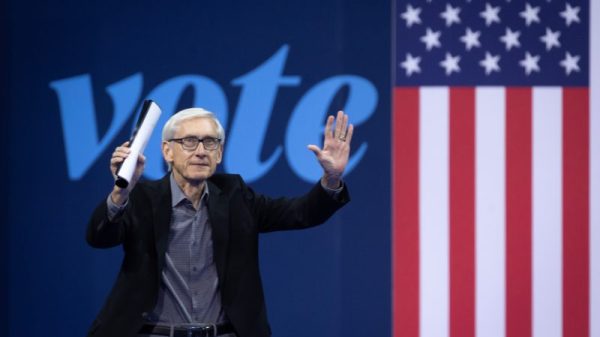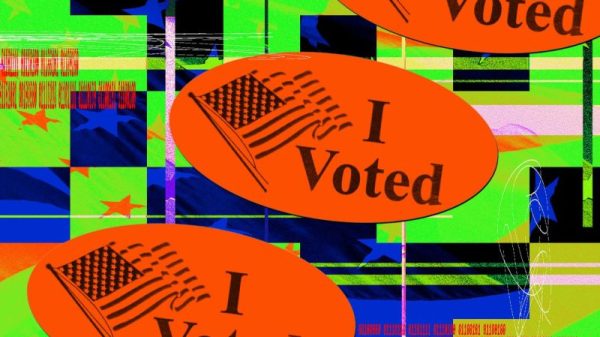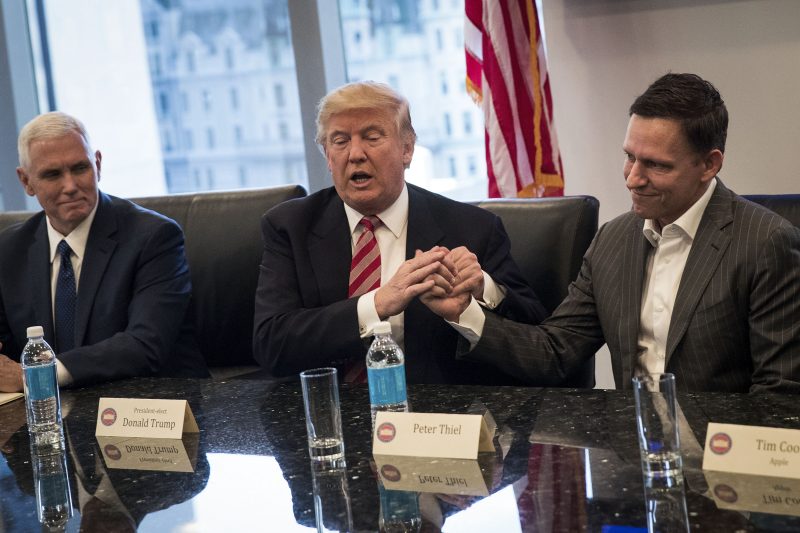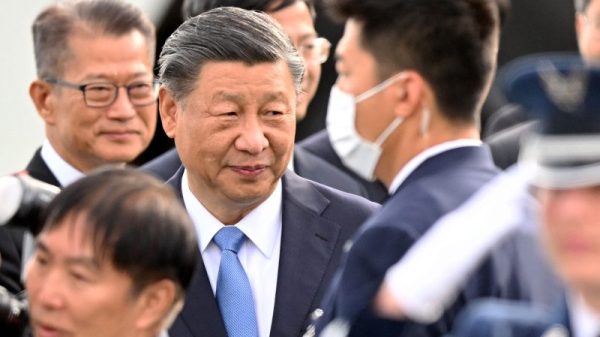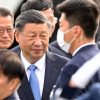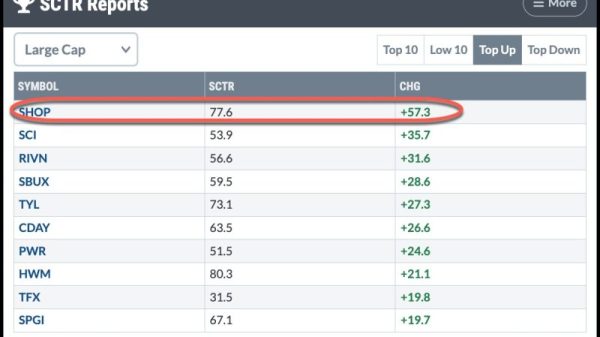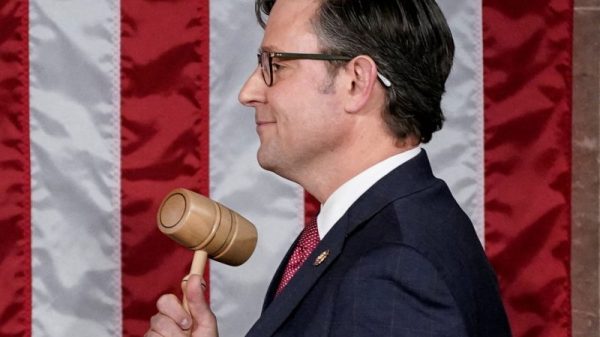The most newsworthy part of Barton Gellman’s new interview of tech entrepreneur Peter Thiel for the Atlantic is that Thiel is swearing off campaign contributions. He’d been a big donor to Donald Trump’s 2016 campaign, earning a speaking spot at that year’s convention. More recently, he’d provided millions of dollars to political action committees supporting the candidacies of U.S. Senate aspirants both successful (Sen. J.D. Vance in Ohio) and not (Blake Masters in Arizona). But now, Thiel told Gellman, he’s backing off.
His decision to opt out of 2024 did not land well with his most successful former beneficiary. Thiel told Gellman about a call that occurred in late April of this year, when Trump noted how much Thiel had done for Vance and Masters.
“Thiel had given each of them more than $10 million; now Trump wanted Thiel to give the same to him,” Gellman reports. “When Thiel declined, Trump ‘told me that he was very sad, very sad to hear that,’” Thiel recounted. “‘He had expected way more of me. And that’s how the call ended.’” A few months later, Trump reportedly had spicier descriptors for Thiel in a call with Masters.
That Thiel is at least planning not to be involved in 2024 is, as noted, big news. But as it turns out, so is that call from Trump — a call that, if Thiel’s recounting is accurate, very likely violated federal campaign law.
Whether federal regulators would do anything about it is another matter.
The rules around campaign contributions have never been something to which Trump appears to extend much concern. Before the 2016 campaign, he was involved in efforts to prevent Stormy Daniels and Karen McDougal from speaking to the media about their alleged dalliances with him. Trump’s attorney who orchestrated payments to the women was Michael Cohen. Cohen paid Daniels himself, eventually being repaid by the Trump Organization. McDougal was paid by the then-parent company for the National Enquirer.
Cohen eventually reached a plea agreement with the federal government for his role in the payments, payments that constituted unreported spending on behalf of a federal campaign. Trump was deeply implicated but was not charged.
These issues can seem abstract, so it’s useful to articulate why the laws exist. Federal candidates, as you are likely to know, are bound by limits on how much they can raise from individual donors and how they report what they’ve spent. The intent is, in part, to prevent candidates from being bought by huge donors to whom they would become beholden. But nearly every dollar is supposed to be tracked. So when Cohen, working on Trump’s behalf, sent $130,000 to Daniels to keep her from damaging the campaign, the campaign was obligated to report the spending to the Federal Election Commission (FEC).
Outside groups also are allowed to aid candidates through independent expenditures but are unbound by the same rules. They can raise and spend tons of money without many restrictions. But there is a big one: They can’t coordinate with the campaign. After all, if candidates were allowed to tell the outside groups where to spend their money, the limits on the campaigns would become irrelevant.
Candidates for federal office can help those outside political action committees fundraise but, according to the Federal Election Campaign Act, are still bound by the same contribution limits. In the case of an individual, the limit is $5,000.
In April 2023, Trump was a federal candidate, having registered last November to run for president. It seems almost certain that his entreaty to Thiel focused on making a contribution to an outside PAC. And $10 million, you may be aware, is more than $5,000.
“As a federal candidate, Trump can’t raise money in excess of the federal limits,” explained former FEC general counsel Larry Noble in an email to The Washington Post. Noble speculated that Trump might argue that “there was no actual solicitation under how the Republicans on the FEC interpret the rules” — in part because there is at this point no direct quote of the ask. Perhaps the wording Trump used was nuanced and fell within the boundaries of the law, although our shared observations of Trump’s behavior over the past eight years might suggest that is not likely.
Noble’s reference to the Republicans on the commission is pointed. The FEC is governed by six commissioners, three from each of the two major parties. The effect of this is that decisions are often stalemated on 3-to-3 votes, meaning that no action is taken. If a candidate were savvy enough to recognize that no FEC action was likely and to have the experience of the Justice Department’s not taking action on campaign finance violations, the candidate might feel somewhat emboldened to sidestep the guidelines.
The Trump campaign did not reply to a request for comment by the time of publication.
It does seem unlikely that anything will come of this, both because the FEC is generally regulatory quicksand and because federal law enforcement has been picking its battles with the former president. But it still is worth elevating that the leading Republican candidate for president might be unconcerned about federal campaign finance laws, however unsurprising this might be.
We also can assume that Thiel’s revelation of this conversation to a reporter might elicit more spicy descriptors from Trump about the entrepreneur.




